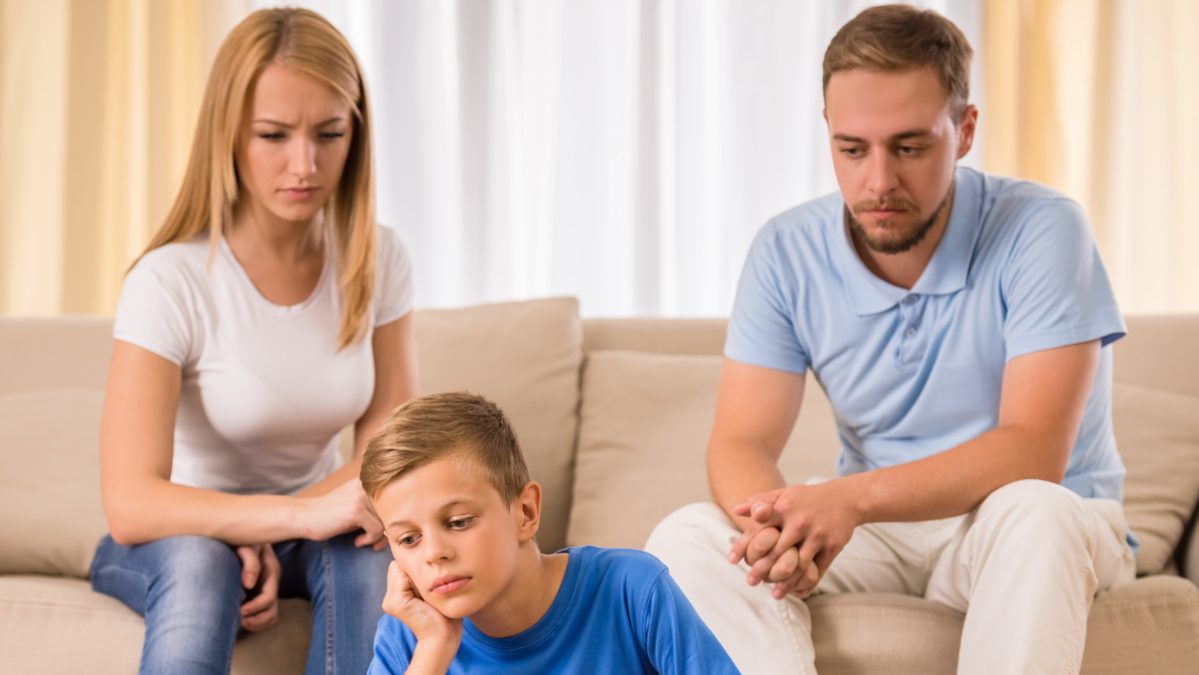Divorce is not just a legal dissolution of a marital union but a seismic event in the family structure, which can be profoundly destabilizing for teenagers. The adolescent years are inherently tumultuous, marked by significant developmental changes and a quest for identity and autonomy.
When the foundational family unit shifts during these formative years, teens can experience a range of emotions, from confusion and guilt to sadness and anger.
The psychological impact of divorce on teens can manifest in various ways, LACFLA has proven this to be true and are offering ways to help. Some might withdraw socially, while others may exhibit behavioral changes such as increased irritability or defiance.
Academic performance can suffer, and there might be an increased risk of substance abuse and mental health disorders such as depression and anxiety. Given these potential impacts, it’s crucial for parents and caregivers to approach the situation with empathy, understanding, and proactive support.
Maintaining Open Communication

One of the most effective ways to support teens during a divorce is to maintain open lines of communication. It’s important for parents to invite their teens into conversations about the changes happening within the family.
However, these discussions should be age-appropriate and devoid of unnecessary details or parental conflict. The goal is to reassure the teen of the unchanging factors, notably the love both parents continue to hold for their child, despite the marital split
Parents should encourage their teens to express their feelings and thoughts about the divorce, providing a safe space where their emotions are validated.
This can involve active listening, where parents give full attention to their teens, acknowledging their feelings without immediately offering advice or solutions. Such interactions can help teens feel heard and understood, rather than isolated with their emotions.
Ensuring Consistency in Daily Life
During a divorce, the upheaval in family life can lead to a breakdown in routines and norms that teens may have previously taken for granted. To counteract this, parents need to strive for consistency in daily routines and rules. This includes maintaining regular meal times, consistent disciplinary practices, and a stable schedule for school and extracurricular activities.
Keeping a routine helps provide teens with a sense of normalcy and predictability amidst the chaos of divorce. It can be comforting to know that some aspects of life will continue as usual, which can be incredibly stabilizing during times of change. Additionally, parents should work together to ensure that major decisions concerning the teen’s life are made jointly, presenting a united front to help the teen feel secure.
Fostering a Supportive Network

Teens benefit from having a broad support network during the challenging times of a parental divorce. This network can include family members, friends, teachers, and mental health professionals. Encouraging teens to stay connected with these support systems allows them to have additional outlets for discussing their feelings and reduces the sense of isolation that might come with the family’s transition.
In some cases, engaging with a therapist or counselor can provide teens with the tools to cope with the emotional stress of a divorce. These professionals can offer a neutral space for teens to express their feelings and learn healthy coping mechanisms. Support groups for teens going through similar experiences can also be beneficial, as they provide peer support and a sense of belonging.
Promoting Healthy Coping Mechanisms
Teaching teens healthy coping mechanisms is vital in helping them navigate the emotional turmoil of divorce. This includes encouraging them to engage in activities that foster a positive state of mind, such as hobbies, sports, and artistic pursuits. Physical activity, in particular, is a powerful antidote to stress and can help improve mood through the release of endorphins.
Parents should also model positive coping strategies, such as engaging in open discussions about emotions, using relaxation techniques, and seeking social support. By demonstrating these behaviors, parents can teach by example, showing their teens constructive ways to manage their emotions.
Nurturing the Parent-Teen Relationship

It is essential for each parent to invest time and effort into nurturing a strong, supportive relationship with their teen. This means spending quality time together, being present during interactions, and showing an interest in the teen’s life and passions. Such efforts help reinforce the teen’s sense of security and belonging.
During and after the divorce, it’s important for parents to avoid leaning on their teens as emotional support or involving them in adult issues. Keeping parental boundaries clear and respecting the teen’s need for a relationship with both parents, without interference or negative influences, is crucial for their emotional health.
Encouraging Emotional Expression
An often overlooked but crucial aspect of supporting teens during a divorce is encouraging them to express their emotions in various forms. This can include verbal expression through conversation, or more creative outlets such as writing, art, or music.
Providing teens with journals to write down their thoughts, enrolling them in art classes, or encouraging musical expression can be instrumental in helping them process their feelings.
Teens might not always feel comfortable talking directly about their emotions concerning the divorce. Creative expression offers an alternative path for emotional release and can be highly therapeutic. For instance, writing poems or stories allows teens to externalize their feelings and thoughts in a structured yet personal way.
Similarly, painting or drawing provides a visual outlet for emotions that might be too complex to articulate verbally. Encouraging such activities not only helps teens deal with their emotions more healthily but also fosters personal growth and self-discovery during a challenging period.
Providing Education on Change and Resilience

Another vital step in supporting teens through a divorce is to educate them about the nature of change and the concept of resilience. Understanding that change is a natural part of life and learning how to adapt to it can empower teens to handle not just the current situation but future challenges as well. Parents can help by sharing resources, books, or even stories of others who have successfully navigated significant life changes.
Teaching resilience involves helping teens to see beyond the immediate distress and recognize their inner strength and capability to adapt. It’s about building a mindset that views challenges as opportunities for growth rather than insurmountable obstacles. This can be reinforced by setting goals, celebrating small achievements, and acknowledging the progress they make in handling the divorce’s impact.







